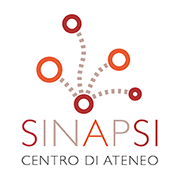

National Coordinator:
Local units:
Autism is a complex syndrome connected with environmental and genetic causes, and manifests itself with relational and communicative complications, or deficits of empathy, which constitute obstacles in reaching autonomy and building a personal life project. However, when people affected by the syndrome are appropriately followed both on a medical and psychological level and are stimulated in the relational sphere, they are able to reach a state of autonomy, in some cases a good
level of education and be able to work.
The project "Autism - University" elaborated in a joint effort by the Service Centers for Disabilities of the University of Bologna, Catania and Napoli, fits perfectly in a strictly scholastic frame, interpreting the educational objectives foreseen by superior formative courses, in accordance with the describers of Dublin, in terms of: attended knowledge (applicable to professional practice), competencies (e.g. critical evaluation, of communication, linguistic, of planning/calculation);
ability/capability (problem solving; comprehension) with the aim of transferring such learning to everyday personal and professional life.
On this basis, it is indispensable, in order to be able to effectively plan and apply this educational offer, to use a system to record knowledge of capabilities at the beginning and at the end of the process.
This is even more essential in the presence of disabled students affected by autism for whom it is necessary to be able to identify the resources that are more successful in their education.
Often, in the university context, one is faced with individuals with very high cognitive functionality, but lacking affective and relational skills, which can be recovered if it is possible to identify and strengthen complementary capabilities and resources.
Thus, the project follows a structured framework developing capabilities and life skills on a professional level but does not confine itself to the scholastic environment because, according to the ICF logic, it intends to extend research to the interaction of the person in all contexts (family, professional training, leisure environments, etc).
Expanding the study to the different contexts of the subject's life, taking into consideration the multiplicity of human and relational aspects, can be truly useful to the development of autonomy of persons affected by autistic syndrome, thus allowing them to pursue professional life.
Within the project, the SInAPSi Center, in collaboration with the association Autism Aid Onlus http://www.facebook.com/pages/Autism-Aid-onlus/159844307297?v=info and ANGSA Campania http://www.angsaonlus.org/, in the vision of a multidisciplinary, pedagogic, psychological and technologic application of its resources, aims at providing those affected by Autism Syndrome and their families useful tools to guarantee a more conscious relationship with the everyday difficulties and to open new areas in which to discuss issues with local authorities, educational institutions, associations and families. The objective is to overcome the image of the autistic person as someone characterized only by behaviors based on their difficulties (problems of interaction, obsessive behaviors, lack of imitative ability, etc.): this objective can be reached only through observation in all contexts.
This observation, with the aid of detection tools to recognize capabilities used for autistic subjects (but extendable to many other students) will allow us to initiate individual solutions and solutions that reach individuals in their socio-familial context.
This observation, with the aid of detection tools to recognize capabilities used for autistic subjects (but extendable to many other students) will allow us to initiate individual solutions and solutions that reach individuals in their socio-familial context.
Objectives:
Offer students with Autistic Syndrome that are considering enrolling in a degree program the
chance to:
Actions aimed at involving students affected by Autistic Syndrome in higher education:
Actions aimed at families and the territory:
For further information it is possible to contact the Autism Help Center:
E-mail: sportelloautismo.sinapsi@unina.it
Phone: (+39) 081 679948.